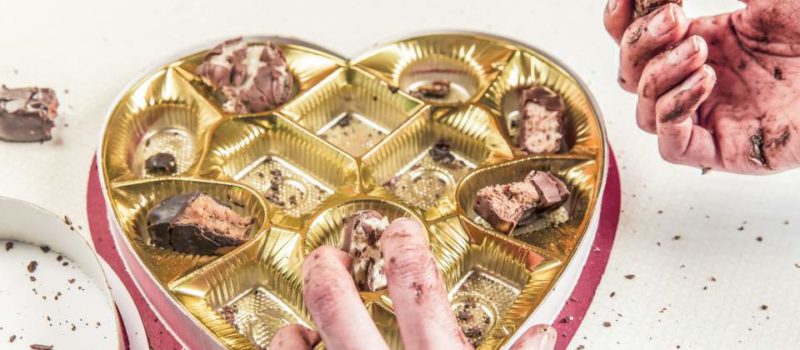It’s so easy to cheat. Here’s a situation: It’s dinner time, and the kids are not that hungry. They left a whole 1/2 toasted bagel with cream cheese completely untouched. As I’m clearing away the dishes, I can tell how good it smells. I think to myself, OK, just one bite, I really don’t want to throw away so much food. On the first bite, I realize the bagel is still warm, and it’s delicious. So I figure, OK, just because it’s still warm, let’s have just one more bite. This time, I take a large bite, as I don’t want to throw away food of course. After the 2nd bite, I see that almost half the bagel is gone, so it makes sense to just eat what’s left, as 1/2 of half bagel doesn’t make a lot of difference anyway, and hey, I’ll just eat a bit less tomorrow.
Are you familiar with the situation? Situations where you’re trying to convince yourself that it’s OK to eat something on the spur of the moment? That you tell yourself all these convincing arguments of why it’s not a bad idea? We can come up with so many reasons:
- I really want it and will probably end up eating it in the end anyway
- I don’t want to throw it away
- I’ll compensate by eating less later
- This doesn’t have too many calories
- It’s only half a piece
- I deserve this as I’ve really watched what I ate this week
- It really doesn’t matter
- I’m allowed to as I’m celebrating
And so on and so forth… You get the idea. When we really crave something, we’ll convince ourselves that all these reasonings are valid and that it’s OK to give in to them.
What to do ? How to overcome these thoughts, when we want the food so badly?
We can be better prepared so we know how to respond to these thoughts when they creep in. When we’re calm and not hungry, we can think about a good response for each of these hindering thoughts. For example, a response to “I really really want to eat this, and I’m fed up with this diet anyway” can be “well, now I feel I’m fed up, but when I lose weight I’ll feel very good. I will feel bad if I give in and eat this. I knew this process will be difficult, and this is one of those difficult moments. I will feel very proud if I resist the temptation”.
A response to “it’s a very small piece, it will not make any difference” can be “Little small pieces add up. I need to stop the habit of eating food that I didn’t plan on in advance. I need to be able to not give in to cravings and this is an opportunity for me to practice and strengthen my resistance power. ”
Think of what convincing stories you may be telling yourself when you feel like eating something you know you shouldn’t, and come up with good answers.
You can even write down the responses on paper. Sometimes seeing something written makes a stronger impact. Eventually, you will have these thoughts and similar ones, and being ready can make the difference between giving in or conquering your impulse. The important thing is to be ready.


This describes SO MANY of my thoughts exactly! We made these bad habits for ourselves; we can UNmake them 🙂
I love that – UNmake these thoughts! Thank you for that!